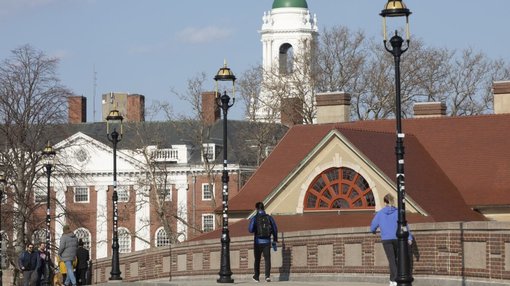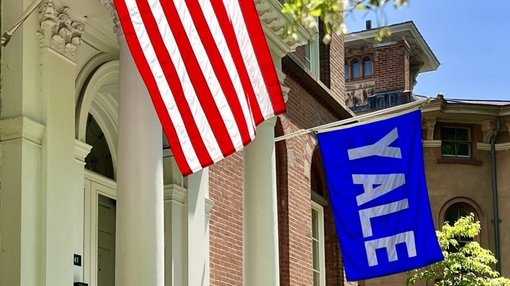Why Women Still Need Their Own Month and Their Own Colleges
Archive by Erudera News May 02, 2010

by Nancy Oliver Gray
President, Hollins University
by Nancy Oliver Gray, President of Hollins University
Thirty-three years ago, a high school teacher named Molly Murphy MacGregor proposed instituting a womens history class that would be taught over the course of one semester. A fellow teacher suggested that the course only required one hour, not an entire term, because what have women ever done, anyway?
Fortunately for her students and subsequently millions of others across the country Ms. MacGregor was not dissuaded. She taught that class to great acclaim and went on several years later to co-found the National Womens History Project, which celebrates accomplishments by women in the arts, science, education and politics.
MacGregors work culminated in 1987, when the U.S. Congress passed a bipartisan resolution establishing the entire month of March as National Womens History Month. Today, lectures, dramatic performances and interactive programs devoted to womens history are held throughout March in schools, libraries, workplaces and other venues around the nation.
Womens history is beginning to get its due during the other eleven months of the year as well. A number of colleges and universities have established undergraduate and graduate studies in the subject. Museums devoted to womens achievements are opening all over the country, including The Womens Museum: An Institute for the Future in Dallas and San Franciscos International Museum of Women, scheduled to open in 2006. Even mainstream entertainment is contributing: Last year, HBO produced a well-received film, Iron Jawed Angels, about the womens suffrage movement.
So why do we need a National Womens History Month when there are all these other continuing resources in place? Interestingly, as president of a womens college, I hear a similar challenge: Why is it necessary to have womens colleges in this day and age since young women have had complete access to co-educational institutions for many years and have to compete in a coeducational world, anyway?
The answer to both of these questions can be found in the fact that inequality between the sexes continues to persist. Women still get less income than men for doing the same work, their chances of getting hired or promoted are fewer, and they are woefully absent from positions of power.
A gender gap also remains very much alive and well in this countrys political system. Even though a recent Siena College Research Institute poll found that over 80 percent of people surveyed would vote for a woman for president, the U.S. still lags behind nearly 60 other countries in women serving in national legislatures.
And, controversy still rages over remarks made by Harvard University President Lawrence Summers in January. This week, Summers received a vote of no confidence from the Harvard faculty, in part for implying that innate differences may be the reason girls are less successful than boys at mathematics and science. In reality, research increasingly shows the challenges for girls in math and science have less to do with biological influences and more with social and cultural factors, particularly a lack of mentors and female role models.
Womens History Month and womens colleges share a common goal: to recognize achievement and to nurture potential. Even with other ongoing initiatives in place, devoting one month out of the year to celebrate women and their contributions is a vitally important step in changing the countrys mindset regarding women and the limitless possibilities of what they can do.
Likewise, womens colleges are better suited than co-educational institutions at giving women the tools to achieve. Womens colleges offer young women opportunities for more classroom involvement, an environment that builds more confidence and a sense of purpose, and more female role models among faculty members and administrators than many coed schools. As a result, womens college graduates tend to be more successful in their careers, are happier in their jobs, and make more money. They constitute more than 20 percent of women in Congress, and 30 percent of a Business Week list of rising women in business. Yet, they represent only two percent of all female college graduates.
An overwhelming majority of womens college graduates 98 percent at Hollins University, for example say their choice prepared them well for the life they are living.
The theme of Womens History Month this year is how Women Change America. Graduates of womens colleges are changing America for the better everyday, whether they are political leaders (Rep. Nancy Pelosi), artists (choreographer Twyla Tharp), spiritual leaders (Rev. Cynthia Hale of Georgia), journalists (ABC News Ann Compton), business leaders (toy company entrepreneur Pleasant Rowland), or scientists (Delaware State Police Crime Lab Director Julie Willey). I can think of no better way to celebrate the spirit and purpose of Womens History Month than by enthusiastically encouraging more young women to consider attending a womens college. Now more than ever, our young women need the benefits that womens colleges offer. Now more than ever, we need those women.
# # #
Recent Articles
United States
Apr 23, 2024
Canada
Apr 23, 2024
United States
Apr 22, 2024
United States
Apr 22, 2024


